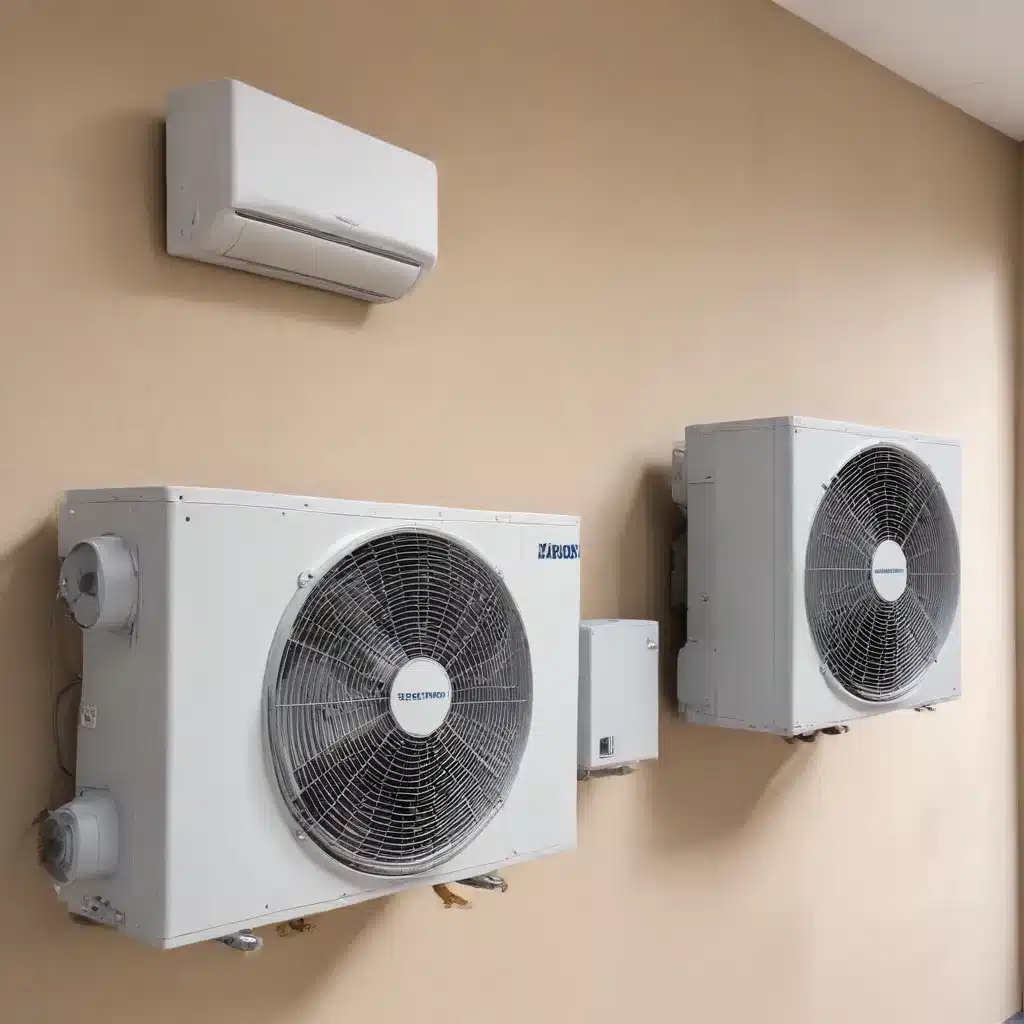
As an experienced air conditioning specialist, I’ve seen the remarkable transformations that have occurred in the HVAC (Heating, Ventilation, and Air Conditioning) industry over the years. One of the most exciting and impactful developments has been the integration of smart technology into HVAC systems.
Embracing the Smart Home Revolution
The world is rapidly embracing the smart home revolution, where the Internet of Things (IoT) seamlessly connects various devices and systems in our living spaces. This technological advancement has had a profound impact on the HVAC industry, enabling homeowners and businesses to achieve unprecedented levels of energy efficiency and climate control.
By integrating smart technology into HVAC systems, we can now automate and optimize the way we heat, cool, and ventilate our indoor spaces. Smart thermostats, for instance, can learn our preferences and routines, adjusting the temperature and airflow accordingly to maximize comfort and minimize energy consumption. This level of intelligent control not only enhances our day-to-day experiences but also contributes to a more sustainable future.
Harnessing the Power of Renewable Energy
One of the most exciting aspects of smart HVAC integration is the ability to harness the power of renewable energy sources. Solar panels and wind turbines have become increasingly prevalent in both residential and commercial settings, and the integration of these clean energy technologies with HVAC systems is revolutionizing the way we approach climate control.
Integrating renewable energy sources like solar and wind power into HVAC systems can significantly reduce our reliance on traditional, non-renewable energy sources. By tapping into the abundant and sustainable energy of the sun and wind, we can dramatically lower our carbon footprint and contribute to a greener, more sustainable future.
Optimizing Energy Efficiency
One of the primary benefits of smart HVAC integration is the significant improvement in energy efficiency. By leveraging the power of IoT, HVAC systems can now monitor and adjust their performance in real-time, adapting to changing environmental conditions and occupancy patterns.
Advanced technologies like variable refrigerant flow (VRF) systems and energy recovery ventilation (ERV) systems can dramatically reduce energy consumption while maintaining optimal indoor comfort. These innovative HVAC solutions utilize intelligent controls, advanced materials, and efficient heat transfer mechanisms to minimize waste and maximize the utilization of energy resources.
Enhancing Comfort and Indoor Air Quality
Smart HVAC integration doesn’t just improve energy efficiency; it also enhances the overall comfort and indoor air quality for building occupants. By integrating sensors and automation, HVAC systems can now respond to individual preferences, maintaining the desired temperature, humidity, and airflow in each room or zone.
Moreover, the integration of air purification and ventilation technologies can significantly improve indoor air quality, reducing the presence of pollutants, allergens, and harmful particles. This enhanced indoor environment not only promotes physical wellbeing but also contributes to improved productivity, focus, and overall occupant satisfaction.
Embracing Predictive Maintenance
Another remarkable aspect of smart HVAC integration is the ability to embrace predictive maintenance. By collecting and analyzing real-time data from various sensors, HVAC systems can now anticipate potential issues before they occur, enabling proactive maintenance and reducing the likelihood of unexpected breakdowns.
This predictive maintenance approach not only extends the lifespan of HVAC equipment but also minimizes disruptions to building occupants and reduces the overall cost of ownership. By addressing problems before they escalate, we can ensure the continuous and efficient operation of HVAC systems, delivering reliable climate control and energy savings.
Overcoming Challenges and Barriers
While the benefits of smart HVAC integration are numerous, there are also challenges that must be addressed. The initial investment in upgrading to smart HVAC systems can be higher than traditional systems, which may deter some homeowners and business owners from adopting these technologies.
Additionally, the integration of multiple systems and the need for specialized expertise can present logistical and technical hurdles. Ensuring seamless communication between smart HVAC components, building management systems, and renewable energy sources requires careful planning and integration.
However, as the demand for energy-efficient and sustainable solutions continues to grow, the industry is constantly innovating to address these challenges. Advancements in technology, the availability of incentives and financing options, and the increasing awareness of the long-term benefits of smart HVAC systems are all driving the widespread adoption of these transformative solutions.
The Future of Smart HVAC Integration
As we look to the future, the possibilities for smart HVAC integration are truly exciting. Emerging technologies like artificial intelligence (AI) and machine learning (ML) are poised to revolutionize the way we manage and optimize our HVAC systems.
By leveraging the power of AI, HVAC systems can learn from past data, anticipate future needs, and make autonomous adjustments to achieve maximum efficiency and comfort. Smart grids and IoT advancements will further enhance the integration of renewable energy sources, creating a seamless, self-regulating ecosystem that adapts to our evolving needs.
Moreover, the integration of smart windows, which can dynamically adjust their transparency in response to environmental conditions, will further optimize the balance between natural light, solar heat gain, and energy consumption, delivering a truly holistic climate control solution.
Embracing the Future of Sustainable HVAC
As an experienced air conditioning specialist, I am truly excited about the future of smart HVAC integration. By harnessing the power of renewable energy, advanced technologies, and intelligent automation, we can create indoor environments that are not only comfortable and energy-efficient but also environmentally responsible.
The team at Hamilton Air Conditioning is dedicated to staying at the forefront of these advancements, providing our clients with cutting-edge HVAC solutions that prioritize sustainability, energy savings, and enhanced occupant comfort. We understand that the future of climate control lies in the integration of smart technology, and we are committed to guiding our clients toward a greener, more efficient, and more comfortable built environment.
So, whether you’re a homeowner seeking to upgrade your HVAC system or a business owner looking to optimize your climate control, I encourage you to explore the transformative potential of smart HVAC integration. Together, let’s harness the power of technology and renewable energy to create a sustainable and comfortable future for all.